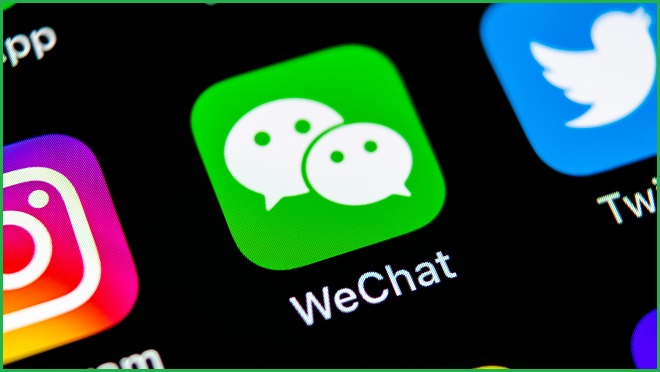A post on Prime Minister Scott Morrison’s official WeChat account has been removed by the platform as tensions between Australia and China escalate over social media.
Morrison posted a lengthy message, culminating in a picture of himself, to WeChat in a bid to retain support from Chinese Australians during a time of diplomatic difficulties.
Earlier this week, the spokesperson for China’s Foreign Ministry, Lijian Zhao, tweeted an image depicting an Australian soldier holding a knife up to the throat of a child along with a message criticising revelations of alleged war crimes committed by Australian soldiers in Afghanistan.
According to SBS, Morrison’s WeChat post defended the armed forces and the Inspector-General of the Australian Defence Force’s recent investigation into those war crimes.
“When incidents allegedly occur that require action, we have established honest and transparent procedures for dealing with them,” Morrison’s WeChat post said.
“Australia will remain true to our values and protect our sovereignty. It's in our national interest.
“The post of a false image of an Australian soldier does not diminish our respect for and appreciation of our Chinese Australian community or indeed our friendship with the people of China.”
But by Thursday, the prime minister’s WeChat post was replaced with a message from WeChat saying it “distort[ed] historical events” and was designed to “confuse the public”.
Speaking at a press conference on Thursday, Morrison deflected a question about concerns over online censorship, describing his message which directly mentioned the Zhao tweet as instead “a message of thanks and appreciation” to Chinese Australians.
“Any Australian of Chinese heritage I want only to feel as valued as any other Australian because we are the most successful multicultural nation on earth,” Morrison told reporters.
The prime minister had already tried unsuccessfully to pressure Twitter into removing Zhao’s tweet. At a virtual press conference on Monday, while he was still in quarantine following a trip to Japan, Morrison said the government had “contacted Twitter to take [the tweet] down immediately”.
“It is an absolute outrageous and disgusting slur and it wouldn’t be the first time that social media have censored posts,” he said.
“In this case, I would think that in the interests of decency, they should take it down.”
The Chinese Embassy spokesperson called complaints about the tweet “absolutely unacceptable”.
“The rage and roar of some Australian politicians and media is nothing but misreading of and overreaction to Mr Zhao’s tweet,” the spokesperson said.
“The accusations made are simply to serve two purposes. One is to deflect public attention from the horrible atrocities by certain Australian soldiers.
“The other is to blame China for the worsening of bilateral ties. There may be another attempt to stoke domestic nationalism.”
Once a lucratic source of trade for Australian exporters, diplomatic relations with China have dramatically soured this year following a push to investigate China’s role in the spread and impact of COVID-19.
Last week, China slapped tariffs of up to 200 per cent on Australian wine.
Shipments of live lobsters have died while being held up Chinese customs and there are concerns other goods will be stuck in transit in a major blow to Australia’s export economy.










